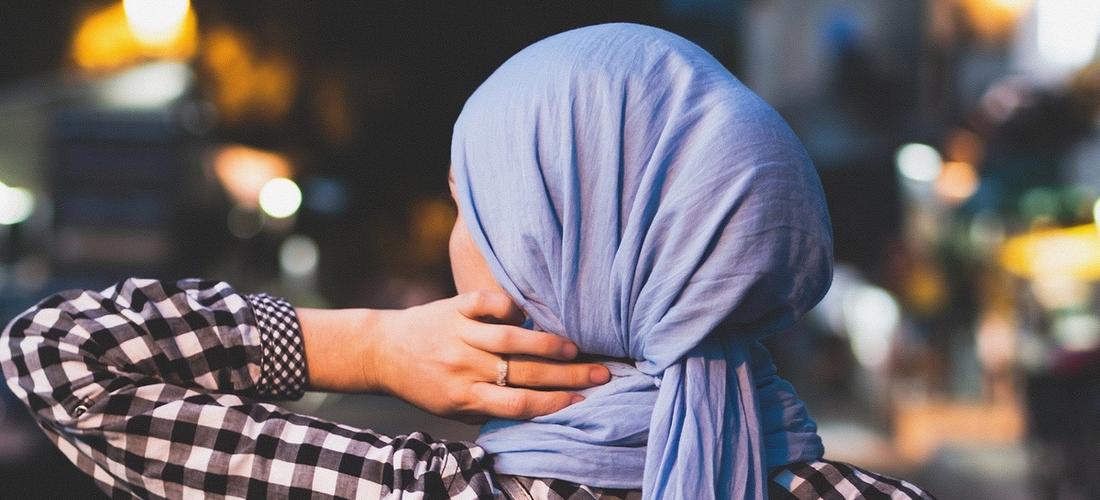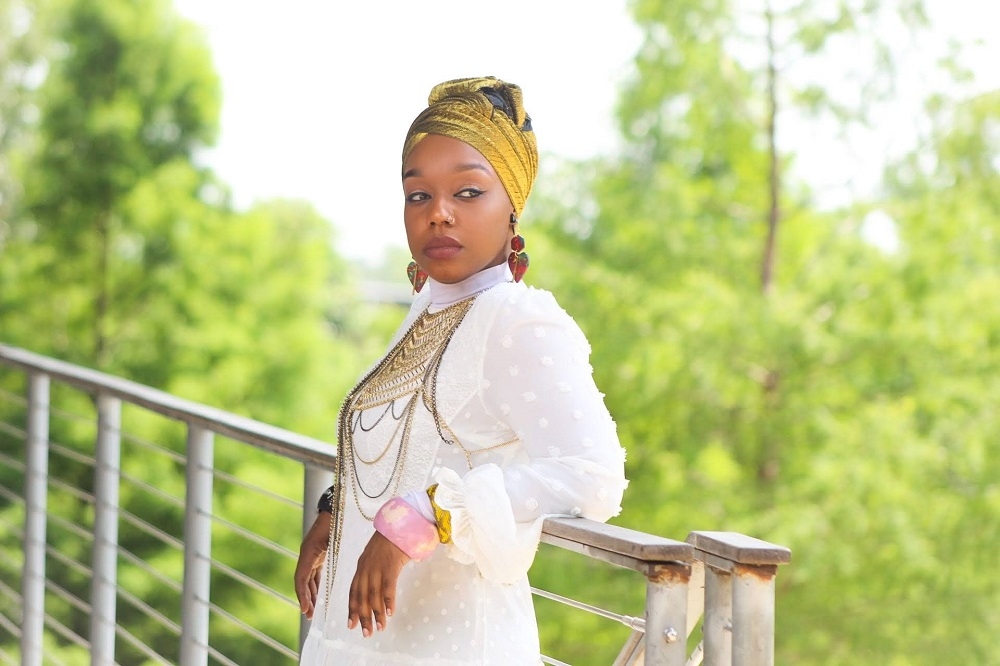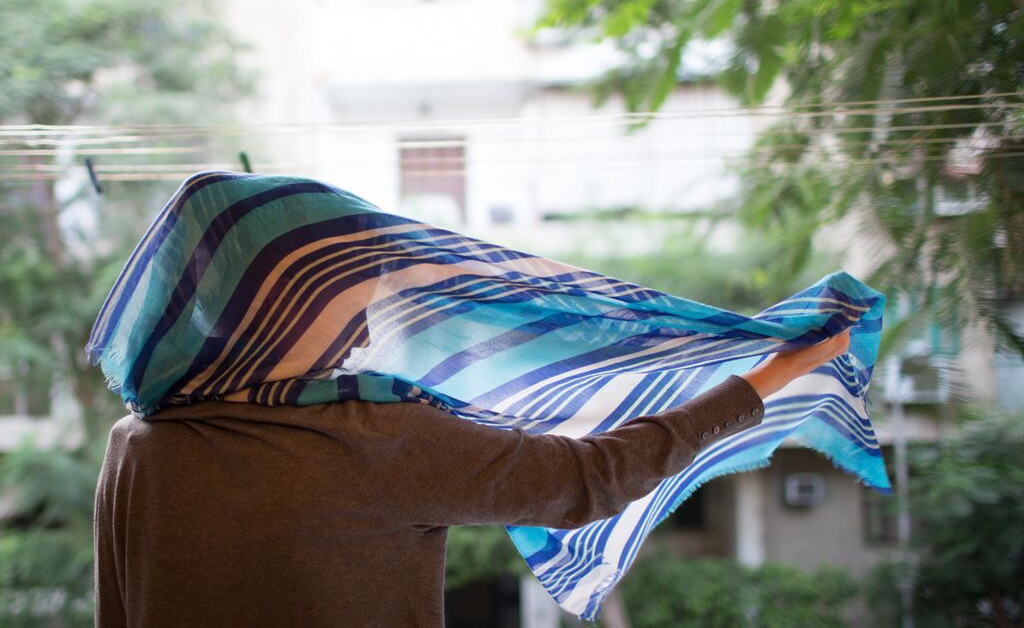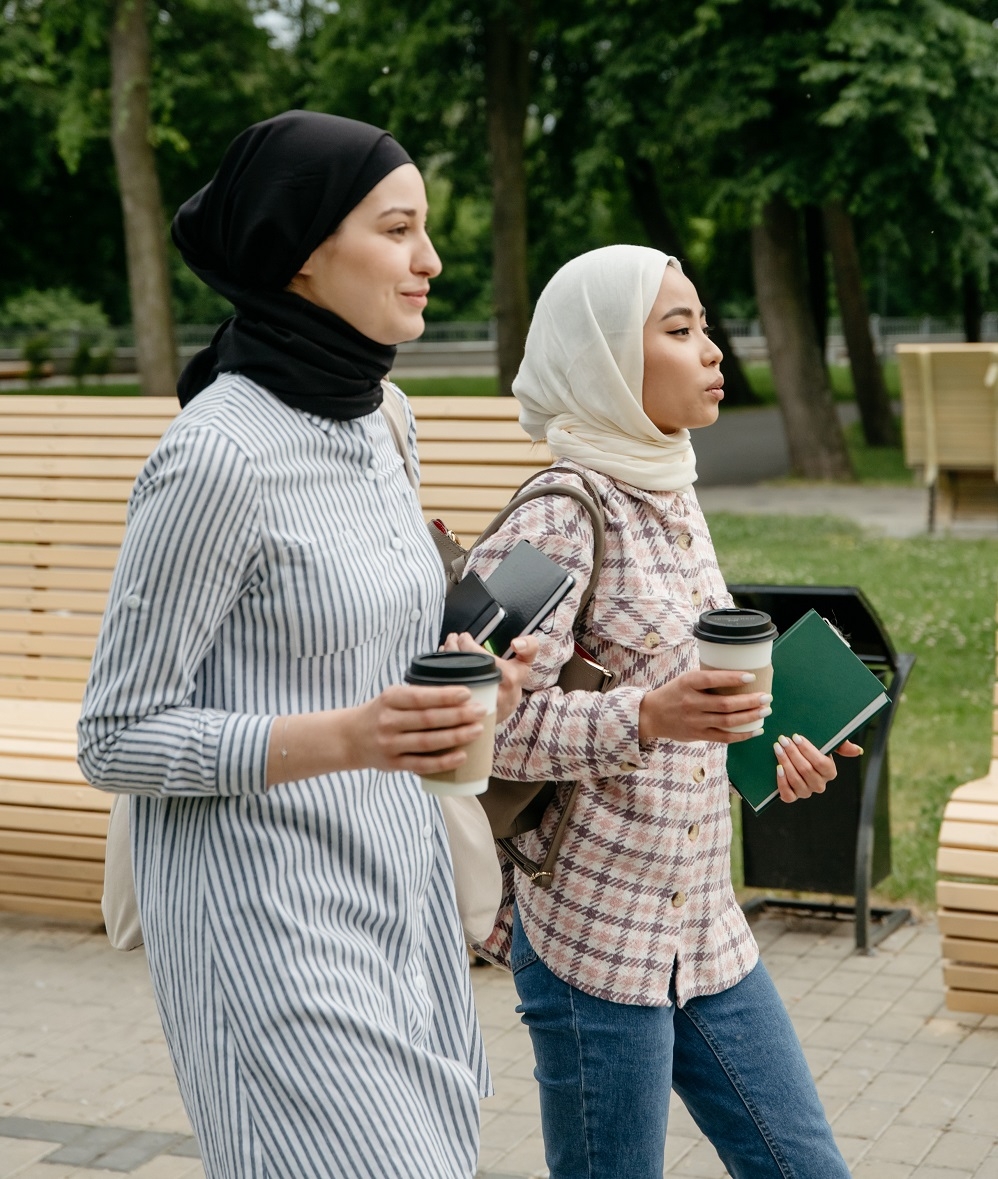Hijab is a Journey. How Should We Engage With A Sister in Islam Who Takes it Off?
Faith
|
Dec 23, 2021
|
6 MIN READ

Image source: VoiceofSalam.com
Editor's note: It's time for our annual #LikeYouMeanItHH end-of-the-year reflection time! What does it mean to "wear it like you mean it?" We invite you (and ourselves) to renew our intentions and reflect on what our hijab (and faith and other areas of our lives) mean to us. Throughout the month we are sharing stories of what this means to women around the U.S.
By Bibi Watts
If you wear hijab regularly, it usually becomes second nature and you no longer have to think about it. It gets nestled in a daily routine when preparing to leave the home.
After repeating a meaningful action over and over again, at some point it begins to feel mundane – almost as if it has lost its depth by the mere fact that it doesn’t need thought to get accomplished. I’m guilty of feeling this way about my hijab practice, from time to time.
I remember when I first started wearing hijab at the age of 11; the transition was not easy for me in the first few months, but I grew up in a community of strong women who exemplified hijab in letter and spirit, so I put it on. Although I was used to seeing the women around me wearing hijab, it wasn’t explained to me. Rather, it was passed down as a Muslim woman’s duty to Allah (S).
Wearing hijab became a non-negotiable when l I had a better understanding of its purpose. I have to understand things before I do them; I can’t incorporate something into my life until I understand the benefit of it. And when I understood why it was mandatory and what it’s purpose was, I connected deeply with it. That isn’t to say it’s been a breeze since then, but to recognize the importance of knowing why Muslim women are called to cover themselves. For me, it gave the action a purpose and made it personal.
Hijab is often referred to as the headcover, but entails much more. It’s part of a larger concept of how one dresses, speaks and behaves altogether. It is to be known as Muslim, and indeed that itself is can be a difficult kind of living in our society. The pressure of beauty standards in the West has everyone second guessing themselves constantly, more so around how we dress and adorn ourselves in public spaces.

Bibi Watts
Having Bodily Agency Versus Prioritizing Modesty
We have seen movements started on the premise of having agency over your body and freedom to treat and cover it the way you want. While I agree with this sentiment, freedom always seems to parallel the idea of less is more when it comes to clothing. This has caused modesty and self preservation to slowly deteriorate.
As if the fabric of morality wasn’t frayed enough, Instagram culture came to serve instant gratification, and we’ve all gotten used to it. We’re often faced with the pressure to show off our body in exchange for praise, and this continues to increase as time passes. No matter what age you are, we are all affected by it. My decision to wear hijab can become irresolute at times, as it is natural for faith to strengthen and weaken. But, one thing we’ve forgotten is how to aid one another in the remembrance of Allah (S).
I’ve been asking myself this question for a while now. How can I balance knowing that I sometimes struggle with the way I wear hijab and simultaneously support sisters struggling just to put it on?
I haven’t exactly come up with an answer, but we see it all around us.
Our sisters are taking off hijab in large numbers and what really hurts me is to see when some Muslims are respond to this with applause. It’s never ok to make someone feel bad about their challenges and decisions, but rewarding a decision with praise or platitudes along the lines of “you do you!” that is unfavorable to Allah (S) should not become commonplace. I know I may receive pushback on this, but I feel it must be said.

Image source: Cairo Scene
We Must Look Out for One Another – But How?
In order to strengthen our deen as individuals, we must also strengthen the bonds we have with one another as a community. In Surah At-Tawbah Allah (S) says: “The believers, men and women, are protecting friends of one another: They enjoin the right and forbid the wrong.” One day I looked up and it seemed like it was no longer acceptable to be a reminder for my sister. It felt like either I had to support her in her decision to take her hijab off or stay quiet.
We even labeled those who remind us that we may be making a mistake as “The Haram Police.”
Confession: With all the spiritual bypassing we have all experienced, I understand the humor in this label. However, it is thrown around too often and really weaponizes the idea of holding each other accountable for our actions for the sake of Allah (S). I’d like to see this change over the next few years. The only way it can happen is by all of us resetting our intentions.
So, how can we help our sisters constructively and with adaab (good manners and kindness)? This is an extremely personal and sensitive thing, when a woman decides to take off her hijab. On the one hand, we can start by knowing when and how to give naseehah (advice). Social media has given us a false sense of entitlement to say how we feel about other people’s lives, but it’s because they share it on their platform.
While it’s true that you give up some autonomy by sharing publicly, there are still boundaries that shouldn’t be crossed. If you see an influencer take off her hijab, one of the best ways to support her is by remaining silent and offering du’a for ease and guidance. Watch this video by @hippiearab, who explains this so well. And if you feel the need to give advice or reach out, reach out to her privately. Things rarely go well are understood in the way you want them to be understood in a public comment thread.

Image source: Pexels
On the other hand, if it’s someone you know, I believe the reminder is better received. I’d reach out to a friend personally and have a conversation to better understand what she’s going through before giving advice. Always start from a place of kindness and by listening to your sister in Islam. Knowing when to just listen and when to share your thoughts is so important. Gauge the moment to see if it is the right time to have this discussion. And, making du’a is always one of the most sincere ways to support one another.
Centering Love and Compassion
Sometimes the best thing we can do for ourselves is go back to the basics. If that means relearning parts of Islam we learned as children, so be it. Nowadays when I put on my hijab, it is with pride and joy. I cannot imagine leaving the house without it. I see it as my cape and badge of honor.
When I walk in to a room I want the world to immediately know that my religion is Islam, Allah (S) is my Lord, and the Prophet Muhammad (saw) is the seal of Prophets. I want the world to know that Islam does not oppress women, rather it elevates and honors the Muslim woman.
Can we collectively get back to being gentle reminders for each other through love and compassion? I’m not talking about harsh public judgment and shaming. We can be there for each other compassionately. I pray that we realize hijab is a way to preserve and protect what is most sacred and beautiful. And Allah (S) knows best. As I continue to fall in love with hijab, I invite you to join me.
Bibi Watts is a content creator, resistance blogger, poet and influencer. Find her on Instagram @bibiwattsco or visit her website.
Subscribe to be the first to know about new product releases, styling ideas and more.
What products are you interested in?

